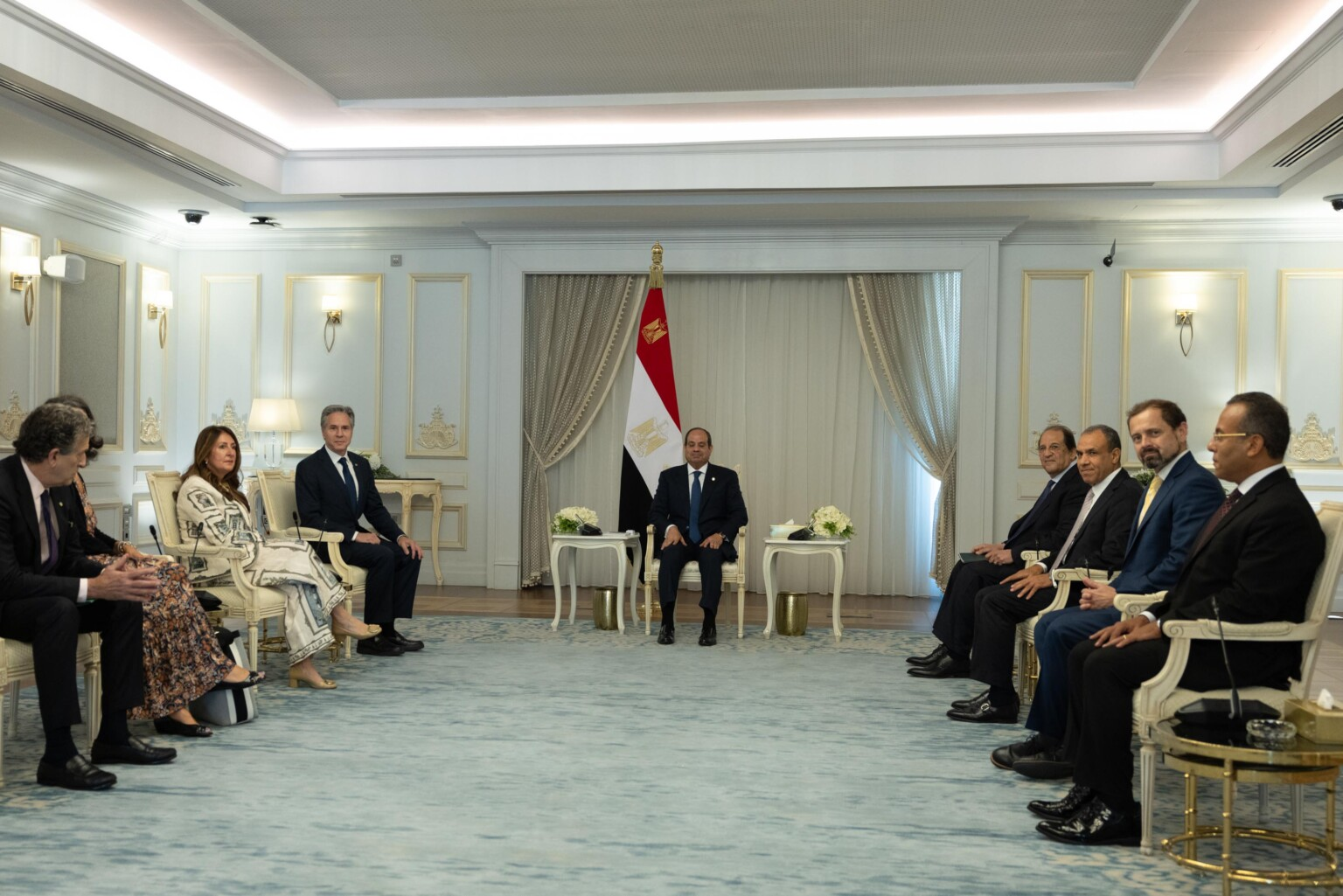Egyptian President Abdel Fattah El Sisi reaffirmed Egypt’s commitment to ending the conflict in Sudan, emphasising the need for international cooperation to resolve the ongoing political and humanitarian crises. In a meeting yesterday with UN Deputy Secretary-General Amina J. Mohammed in Egypt’s New Alamein city, President El Sisi stressed the importance of ending hostilities, safeguarding Sudan’s sovereignty, and protecting its people and state institutions.
The discussions, which included Egyptian Foreign Minister Dr Badr Abdelatty, also addressed the broader regional situation and the pursuit of stability. The UN Secretary-General praised Egypt’s significant humanitarian efforts in managing the refugee situation in the region, acknowledging the considerable burden this has placed on the country.
Radio Dabanga reported earlier in June, Sudanese refugees fleeing to Egypt have been deported in the hundreds, with authorities in Aswan sending them back to the Argeen border crossing with Sudan. Entering Egypt legally has proven to be marred by several bureaucratic challenges, seen by some as a deliberate attempt to limit the influx of Sudanese refugees into Egypt.
President El Sisi also met with US Secretary of State Antony Blinken yesterday, accompanied by US Special Envoy for Sudan Tom Perriello. Reports state that they focused on collaborative efforts to end the conflict in Sudan. Blinken expressed appreciation for Egypt’s role in the ongoing negotiations in Switzerland aimed at finding a peaceful resolution to the Sudanese crisis.
Both leaders emphasised the urgent need to ensure humanitarian access to civilians affected by the conflict.
Blinken confirmed that both sides in the conflict have agreed to open humanitarian corridors, describing the situation as “the world’s largest humanitarian crisis.” However, he stressed the importance of adherence to these commitments. Blinken, speaking from Doha, noted that the USA is working closely with Egypt, Saudi Arabia, and the UAE to secure a ceasefire and achieve lasting peace in Sudan.
In parallel, US Special Envoy to Sudan Tom Perriello has been engaged in talks with the Sudanese Armed Forces (SAF) delegation, seeking to persuade military leaders to agree to terms that could end the hostilities.
These discussions coincide with the ongoing negotiations in Geneva, where representatives from the paramilitary Rapid Support Forces (RSF) are present, though the SAF is absent.
El Fasher Initiative
The El Fasher Initiative, an effort led by the head of the mainstream Sudan Liberation Movement (SLM-AW), Abdelwahid Nur, has also played a role in the peace process. The initiative, supported by various national and political figures, aims to protect civilians, and secure the region of El Fasher, capital of North Darfur.
It calls for both warring parties, the SAF and the RSF, to engage in dialogue and cease violence.
Tagadom
Key Sudanese civil society group, the Civil Democratic Forces alliance, better known as Tagadom (meaning progress in Arabic), consisting of the Sudanese Congress Party, the National Umma Party, the SPLM-Democratic Revolutionary Movement, and other members of the Forces for Freedom and Change-Central Council, welcomed the recent agreement to open humanitarian corridors but condemned ongoing violations against civilians by both sides.
Tagadom, chaired by former Prime Minister Abdallah Hamdok, urged both parties to adhere to their commitments and maintain the Geneva talks’ momentum, stressing the need for genuine and serious efforts to protect civilians and end the conflict that has devastated Sudan and left millions in dire need of assistance.

